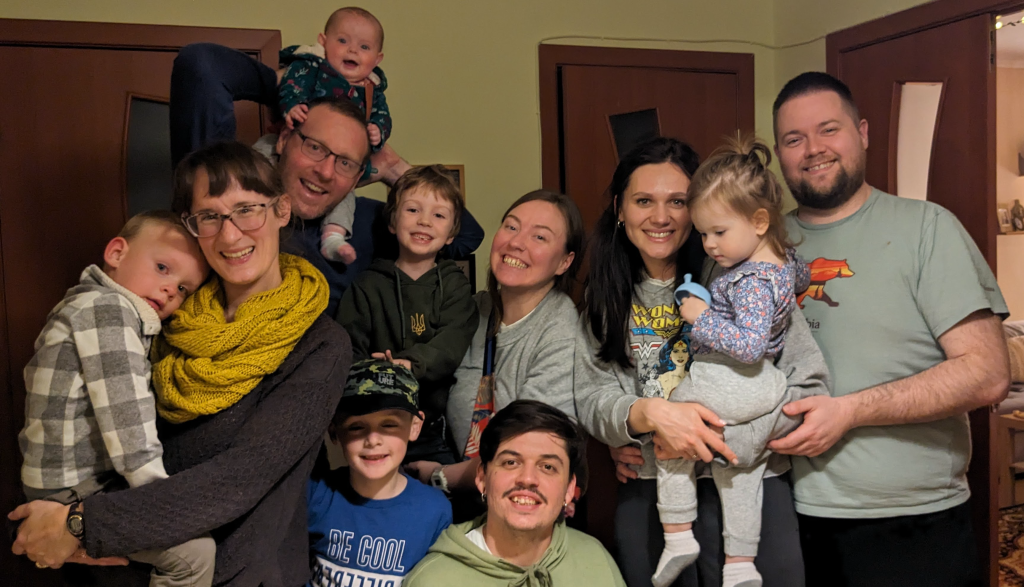Everything Sad is Untrue by Daniel Nayeri
Formational Book Review by Megan
5/5 stars

“How can you explain why you believe anything? So I just say what my mom says when people ask her. She looks them in the eye with the begging hope that they’ll hear her and she says, ‘because it’s true.’
Why else would she believe it?
It’s true and it’s more valuable than seven million dollars in gold coins, and thousands of acres of Persian countryside, and ten years of education to get a medical degree, and all your family, and a home, and the best cream puffs of Jolfa, and even maybe your life.
My mom wouldn’t have made the trade otherwise.
If you believe it’s true, that there is a God and He wants you to believe in Him and He sent His Son to die for you- then it has to take over your life. It has to be worth more than everything else, because heaven’s waiting on the other side.”
Everything Sad is Untrue is a beautiful story of an Iranian family that fled to Oklahoma. The story is told in the style of 1001 Arabian Nights and from the perspective of the author as a twelve-year-old boy. Nayeri weaves the story from his great-grandparents to himself, into one tale of strength and belonging.
Reading as a Disciple
“There are gods all over the world who just want you to express yourself. Look inside and find whatever you think you are and that’s all it takes to be good. And there are gods who are so alien to us, with minds so clear, the only thing to do would be to sit at their feet and wait for them to speak, to tell us what is good.
A god who listens is love.
A god who speaks is law.
[…]
Love is empty without justice.
Justice is cruel without love.”
Mercy and justice are two topics that can actually be divisive. It’s been on personality tests, “which is more important, mercy or justice?” as if you can only show one or the other but not a mix. Americans tend to be more focused on justice, what is right or wrong. It is not always so easy though. God is the perfect mix; he shows perfect justice and absolute love. Nayeri writes of how this is blended and brings it all together with “I think He’s a God who listens as if we are his most important children, and I think He speaks to tell us so.” When we have experienced an injustice, we want justice. When we have experienced hate, we need love. God sees the big picture and knows the best timing for what we want and who needs what.
“Why should anybody live with their head down? Besides, the only way to stop believing something is to deny it yourself. To hide it. To act as if it hasn’t changed your life.” God’s love has changed our lives because he showed us mercy when he should have shown us justice. It is good to read a story of persecution to be reminded of the price that has been paid. “She wanted everybody to have what she had, to be free, to realize that in other religions you have rules and codes and obligations to follow to earn good things, but all you had to do with Jesus was believe he was the one who died for you.” Such a great summary of the Gospel and simple reminder to readers of what our faith is all about.
Reading Communally
“A patchwork memory is the shame of a refugee.”
Refugees are also another difficult topic for Americans to address. This book was full of evidence of that, believers and unbelievers alike. How can we welcome the foreigner? Everything Sad is Untrue has many stories of how Nayeri’s family endured the switch to living in the states, unfortunately, so many stories of how they were not welcomed. Empathy may never be achieved but we can still show sympathy for those that are in a new land, different from their own, having to relearn simple tasks such as grocery shopping and even using a toilet.
“Sometimes when you’re a refugee, you have to give up the dignity you’d have if you said, ‘you know what, thank you, but no thank you. Your son treats my son like a dog, and your daughter says, ‘ew,’ if we get near her, and we appreciate how smiley you are, but we’ll figure out some other way to attend school.”
As believers, we shouldn’t force newcomers to give up their dignity but instead treat each person we meet with dignity and respect. Each individual holds intrinsic value because they are imago dei, the image of God. Everything Sad is Untrue tells many stories of how some people may perceive something but actually there is so much more going on. We do not know the whole story for each person we meet. We must rely on God to fill in the gaps of knowledge between us and give grace to each other. As Episcopal priest Timothy Jones wrote in an article for Rabbit Room, “we are persons made to flourish through the affection and presence of others.” We are not meant to be alone.
Final Thoughts
I loved this book because, while I am most definitely not a refugee, I sometimes feel like a foreigner in my native land and can identify with some of the sentiment expressed by Nayeri. We have taught our kids what imago Dei means and work to instill in them that each person is made in the image of God and therefore their life is valuable. This lesson becomes real when we meet someone different from us; refugees are an easy example. This book was refreshing in not only how it was written but also the story of hope and resilience.
Also by Daniel Nayeri:
The Many Assassinations of Samir, Seller of Dreams
Other books on refugees:
Somalia- When Stars Are Scattered by Omar Mohamed
“In a refugee camp, you are always reminded of the things you have lost. It is a valiant and agonizing struggle to focus not on what you have lost… but on what you have been given.”
Vietnam- Inside Out and Back Again by Thanha Lai
Syria- Nowhere Boy by Katherine Marsh
*Have not read any of these books… yet. (Two are on my bedside table)
(Update: Finished When Stars Are Scattered June 17)
(Update: Finished Inside Out and Back Again July 4)
(Update: Finished Nowhere Boy September 8, read my thoughts on it HERE.)



